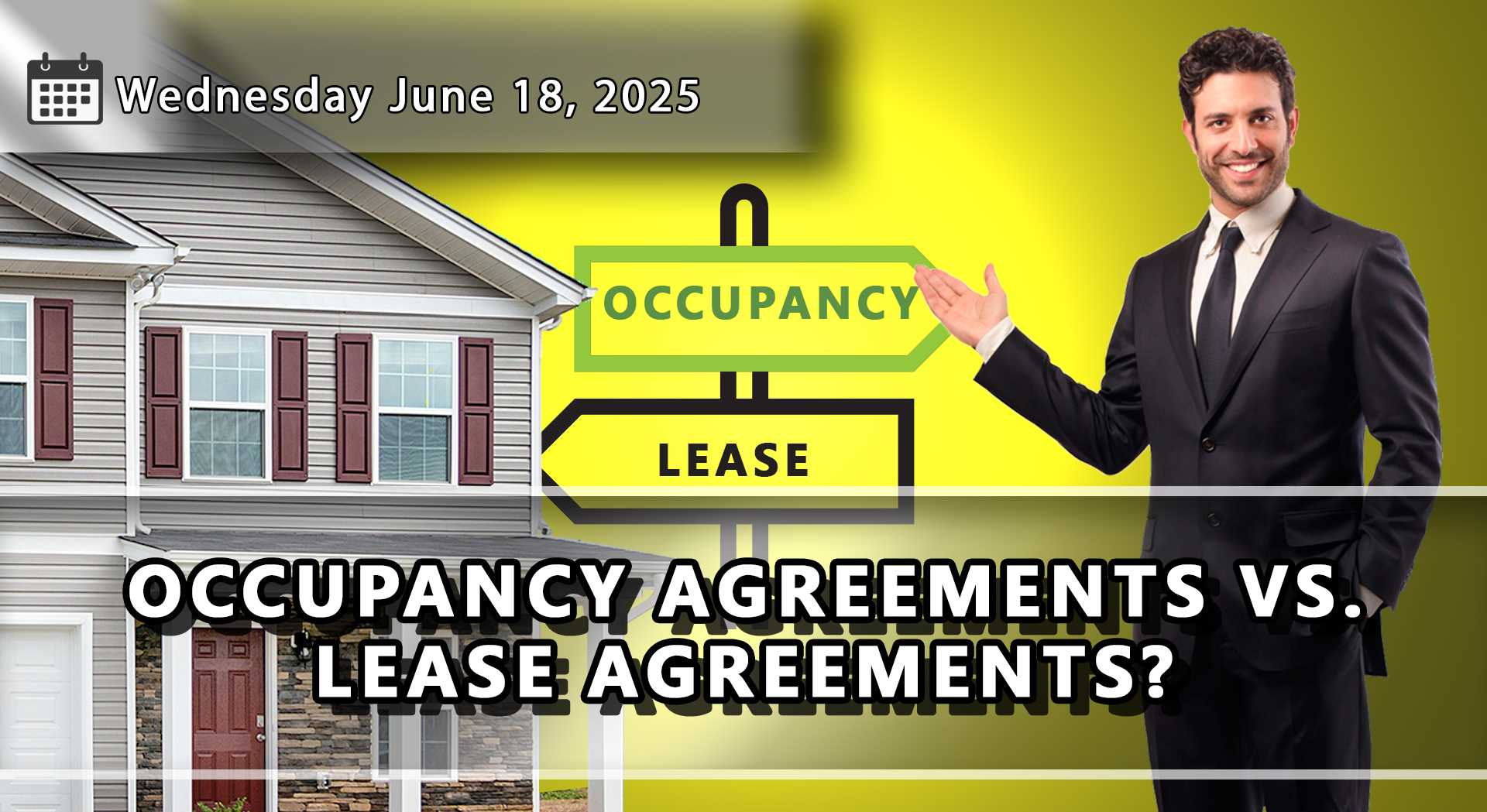INVESTORS – SHOULD YOU USE AN OCCUPANCY AGREEMENT OR A LEASE AGREEMENT?

As a Landlord/Investor, is it a good idea to use “Occupancy Agreements” instead of the more common “Lease Agreement”?

The thinking behind this idea goes like this: with an Occupancy Agreement, you won’t be bound by Ontario’s Landlord and Tenant Board and the regulations it has regarding the treatment of Tenants. Therefore, if a tenant is late on their rent you won’t have to go through the N4 process (which gives tenants 14 days to pay late rent) and the L1 process (which sets a date with the Tribunal to get a formal eviction notice).

With an Occupancy Agreement, the goal for investors was to have the power to request that the tenant leave immediately. These investors hope that leveraging an Occupancy Agreement can get them police support as soon as they call if they need it.
Having means to quickly deal with tenants who are not paying is a nice idea, read on about the use of Occupancy Agreements vs. Lease Agreements.
At first glance, the visible difference between the two agreements is that one says “Occupancy Agreement” at the top and the other says “Lease Agreement”. The main difference being that instead of referring to the person moving into the property as “Tenant” they are referred to as “Occupant.”

According to the Ontario Landlord and Tenant Board, they state that as long as money is being exchanged for use of the property the person/people in the property are considered Tenants and bound by the Landlord and Tenant Board no matter what the agreement is called. This applies even if the Tenant/Occupant is living in the Landlord’s own personal home. If the Tenant is using a separate bathroom and a separate kitchen from the Landlord, then they are considered Tenants (even in the Landlord’s own home).
Reaching out to the Landlord Self Help Center (www.LandlordSelfHelp.com) which is an excellent free resource for investors, the response to the same question was as follows:
“Regardless of the name given to the contract, if there is an offer and acceptance, and a consideration (rent) is paid or given for the right to occupy a residential rental space, then that contract IS covered by the Residential Tenancies Act (RTA), 2006. Section 2 of the RTA has a very broad definition of "rent". If a person is occupying such a space but NOT paying anything (e.g even utilities, mortgage or tax payments), NOR doing any work in lieu of rent, then it would not be a tenancy agreement. Typically, this usually only happens with relatives. The Landlord and Tenant Board has the power to interpret such agreements and determine whether or not the RTA applies, regardless of the wording of the agreement.”

A natural conclusion then, is if money is being exchanged for someone to occupy a property, everyone is bound by the Residential Tenancies Act and under the jurisdiction of the Landlord & Tenant Board in Ontario.
So, the major real estate investment tip to a landlord or future landlord is to continue using Leases and referring to Tenants as Tenants!
I A final thought about Ontario’s Landlord and Tenant Board system. Over the years it’s proven to have not been as painful as first anticipated. The N4 process and L1 process that the Landlord and Tenant Board uses is very straightforward and it gives landlords us a well laid out plan for dealing with late rent.
If you have any further questions or concerns about Occupancy Agreements vs. Lease Agreements, be sure to check with your real estate lawyer or reach out to me.
Whether you’re a novice or a sophisticated and experienced investor, the real estate industry presents a golden opportunity to invest your money and grow that investment if one takes the time to research the many vehicles available.
If you are thinking of becoming a real estate investor yourself, or you are already an investor and would like to leverage your current investment(s) into more properties, or you are looking to sell one or more of your investment properties, give me a call at 905-683-7800 or email me at brian@briankondo.com.
I’ll be more than happy to answer any and all of your questions and help you with all your real estate investment needs.
Thanks For Reading Today’s BLOG!
If you would like to see any of my previous blog posts, please click here.
Brian Kondo
Sales Representative / Team Leader
The Brian Kondo Real Estate Team
Re/Max Hallmark First Group Realty Ltd.
905-683-7800 office
905-426-7484 direct
brian@briankondo.com
www.BrianKondo.com
www.BrianKondoTeam.com
Homesellers - Find Out What Homes in Your Neighbourhood are Selling For! You can receive a FREE computerized printout of ALL recent Home Sales and Current Listings in your neighbourhood. Click here!
Best Buy Hotlist - You can receive a FREE list of the 10 Best Buys in your
specific price range sent to you at No COST or OBLIGATION.
Click here!
Your Home Sold Guaranteed or I'll Buy It!* No Gimmicks! For a Free Special Report that Details my Guaranteed Sale Program, visit: www.BriansGuaranteedSaleProgram.com.
Remember, your referrals change lives! We donate a portion of our income on every home sale to a great worthy cause like SickKids Hospital. To find out more visit: www.ReferForSickKids.com.
If you or anyone you know is considering making a move in the next little while, give me a call or pass on my number ... 905-683-7800 (Office) or 905-426-7484 (Direct).
#FlexibleLivingTrends #OccupancyAgreementExplained #LeaseVsOccupancy #TenantAgreementInsights #LeaseAgreementTips #OccupancyVsLease #RenterAgreement #Landlord #LandlordandTenant


